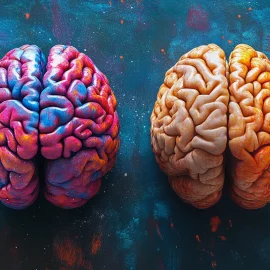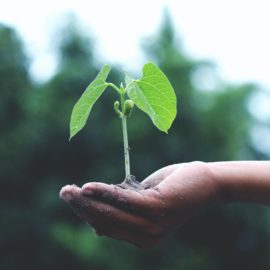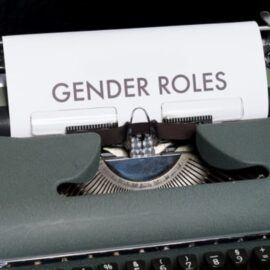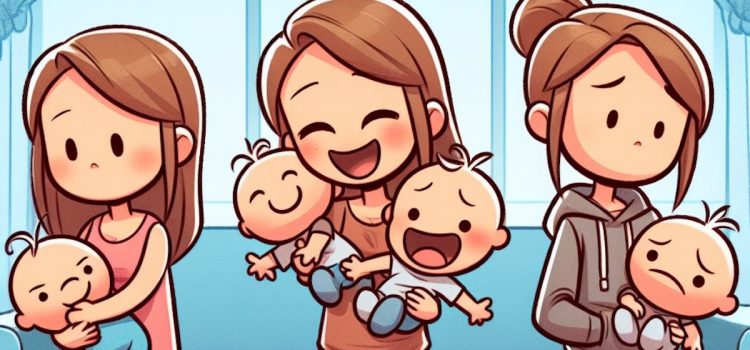
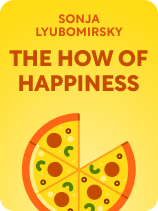
This article is an excerpt from the Shortform book guide to "The How of Happiness" by Sonja Lyubomirsky. Shortform has the world's best summaries and analyses of books you should be reading.
Like this article? Sign up for a free trial here.
Is happiness genetic? What’s your happiness baseline? Can you offset the impact that your genes have on your happiness?
Sonja Lyubomirsky writes that your genetics influence 50% of your long-term happiness and determine your “happiness baseline.” Simply put, your genes define the default level of happiness you typically feel, regardless of life’s ups and downs.
Read more to learn how your genetics influence your happiness.
Is Happiness Genetic?
Is happiness genetic? Lyubomirsky cites studies on identical twins with identical genetic codes to support her theory that your genes set your happiness baseline. Regardless of whether the twins in these studies grew up together or were separated at birth and raised in different environments (for example, one may have grown up in poverty and the other amidst luxury), their happiness levels often mirrored each other. Meanwhile, studies of fraternal twins—who have different genetic codes—found no consistent correlation in their happiness levels whether they shared the same upbringing or lived apart.
This research implies that—unless you’re an identical twin—your genetic code, and therefore your happiness baseline, is unique. You might have a high baseline, meaning you consistently feel upbeat even during tough times, or you might have a low baseline, meaning you tend to feel down even when life’s going well.
(Shortform note: Lyubomirsky bases her argument that genetics contribute to 50% of your happiness on data gathered from 1970-1986. More recent studies suggest that genetics may not be as influential as Lyubomirsky suggests, accounting for approximately 30-40% of your happiness. Further, these more recent studies reveal that the genetic influence on happiness isn’t from a single “happiness” gene, but from a multitude of genetic variants that collectively contribute to your happiness baseline. For example, one study identified 304 genetic variants that each impact happiness.)
The Role of Your Environment
Lyubomirsky explains that, though genetics play a key role, they don’t have the final say on your happiness. Your genes predispose you to certain emotional outcomes, but the extent of their influence depends on a combination of factors, including your environment, experiences, and behaviors. For example, someone might have a genetic predisposition to depression, but, if they grow up in a supportive environment and practice good mental health habits, they might never experience depression.
This means that, even if you’re genetically predisposed to a low-happiness baseline, you can feel just as happy as someone with a high-happiness baseline. You just have to shape your environment and invest more effort into thinking and behaving positively than that person might.
| The Interplay Between Genetic Predisposition and the Environment While Lyubomirsky emphasizes that your environment can counteract or reinforce your genetic predisposition, research on gene-environment correlation shows that the reverse is also true: Genetics shape your environment. A gene-environment correlation (rGE) occurs when genetic factors influence exposure to specific environments. Genes can influence your environment in three ways: passive, active, and evocative. To illustrate how this works, let’s examine how these genetic influences may occur in the life of a child with a genetic predisposition toward happiness. Passive rGE: The child’s parents, having a similar genetic predisposition for happiness, create a joy-filled home that reinforces the genetically influenced happy traits, resulting in a happier child. Active rGE: The child, driven by their genes, gravitates toward activities and experiences that foster positive emotions, like engaging in joyful play with peers. In other words, the child actively shapes their environment in a way that reinforces their genetic predisposition toward happiness. Evocative rGE: This occurs when the environment responds to the child’s genetically influenced traits in a way that reinforces a feedback loop. For example, the child’s cheerful character elicits positive responses from peers, sparking a continuous cycle of happiness. |

———End of Preview———
Like what you just read? Read the rest of the world's best book summary and analysis of Sonja Lyubomirsky's "The How of Happiness" at Shortform.
Here's what you'll find in our full The How of Happiness summary:
- What contributes to long-term happiness and how you can amplify it in your life
- Practical strategies to fuel and nurture happiness
- Why a strategy that makes one person happy may not work for another

